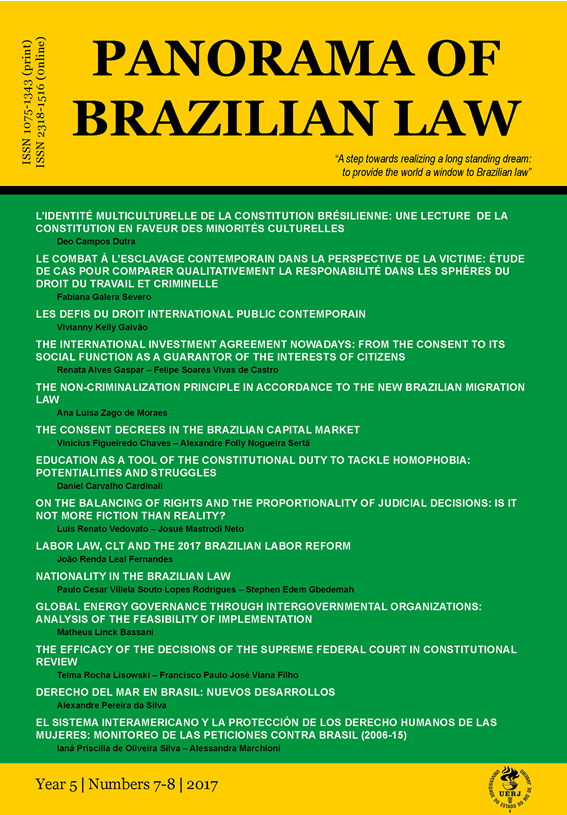GLOBAL ENERGY GOVERNANCE THROUGH INTERGOVERNMENTAL ORGANIZATIONS: ANALYSIS OF THE FEASIBILITY OF IMPLEMENTATION
DOI:
https://doi.org/10.17768/pbl.y5.n7-8.p258-278Abstract
This paper analyzes the current factors causing an energy crisis, including depletion of the natural resources, geopolitical tensions, energy security, search for climate stability and absence of universal access to energy. Through the deductive method, the study analyzes if investments are considered as a possible solution to promote sustainable energy. It assesses the current position of intergovernmental organizations linked in some way to the topic of energy, such as the WTO, ECT, G8, G20, IEF, IEA and OPEC, to identify whether the initiatives are being developed and the political will to do so. Some organizations are connected but with limited and insufficient focus. Funding initiatives are below of what is necessary to achieve the goals considered relevant. In the absence of a global governance of energy due to the lack of sufficient cooperation and collaboration of international actors to efficiently mitigate the energy crisis. The challenge is to alter from high to low carbon economy, and the shift from fossil fuels to renewable energy will contribute substantially to this transition. It concludes the necessity of cooperation between organizations such as IRENA and ONU’s programme Sustainable Energy for All, which have the potential to become catalysts for a new trend.
Downloads
Published
How to Cite
Issue
Section
License
Panorama of Brazilian Law employs Open Journal Access policies.
Authors are fully and exclusively responsible for their submissions.
Authors who publish with this journal agree to the following terms:
- Authors retain copyright and grant the journal right of first publication with the work simultaneously licensed under a Creative Commons Attribution-NonCommercial-ShareAlike 4.0 International License that allows others to share the work on a non-comercial basis with an acknowledgement of the work's authorship and initial publication in this journal and indicating if any changes were made. If you remix, transform, or build upon the material, you must distribute your contributions under the same license as the original.
- Authors are able to enter into separate, additional contractual arrangements for the non-exclusive distribution of the journal's published version of the work (e.g., post it to an institutional repository or publish it in a book), with an acknowledgement of its initial publication in this journal.

